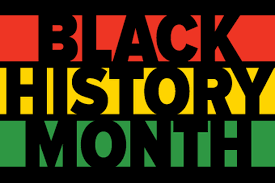As a Harvard-trained historian, Carter G. Woodson, like W. E. B. Du Bois before him, believed that truth could not be denied and that reason would prevail over prejudice. His hopes to raise awareness of African Americans’ contributions to civilization was realized when he and the organization he founded, the Association for the Study of Negro Life and History (ASNLH), conceived and announced Negro History
Week in 1925.
The celebration was expanded to a month in 1976, the nation’s bicentennial. President Gerald R. Ford urged Americans to “seize the opportunity to honor the too-often neglected accomplishments of black Americans in every area of endeavor throughout our history.”
“Black History Month gives us an opportunity to intentionally\ familiarize ourselves in such a way that will enable us to embrace our diversity to its fullest, putting unity to use for good. When we do that— when we knowledgeably serve side by side—there will be no stopping what we can do in the name of Jesus Christ” (Dr. Tony Evans, 2011).
Evans continues, “Unity can be defined in its most basic of terms as oneness of purpose. It means working together toward a common goal. Unity is not achieved through seminars, but rather through service together. Unity is not uniformity either. Just like God is made up of three distinct Persons—each unique and diverse—unity does not negate individuality. Unity embraces diversity to create a stronger whole.
